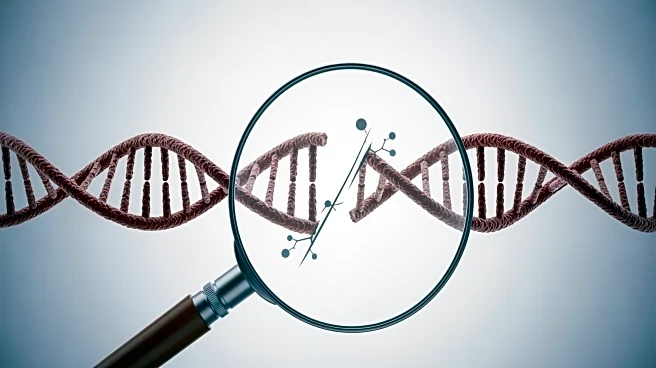What's Happening?
A recent study has identified the role of ACTG1-driven splicing in enhancing epithelial-mesenchymal transition (EMT) and bladder cancer progression. Researchers utilized data from the TCGA and GEO databases
to analyze gene expression differences across various cancer types, focusing on bladder cancer. The study found that ACTG1, along with P4HB and circ_0046263, plays a significant role in bladder cancer progression. The research involved a meta-analysis approach to validate the differential expression of ACTG1 in bladder cancer samples, highlighting its potential as a target for novel therapies. The study also explored immune infiltration and protein interaction networks, providing insights into the molecular mechanisms driving bladder cancer.
Why It's Important?
The findings of this study are crucial for the development of targeted therapies for bladder cancer, a disease with significant morbidity and mortality rates. By understanding the genetic and molecular pathways involved in cancer progression, researchers can develop more effective treatments that specifically target these pathways. The identification of ACTG1 as a key player in bladder cancer progression opens new avenues for therapeutic intervention, potentially improving patient outcomes. Additionally, the study's insights into immune infiltration and protein interactions could lead to advancements in immunotherapy approaches for bladder cancer.
What's Next?
Future research may focus on developing drugs that specifically target the ACTG1 gene and its associated pathways to inhibit bladder cancer progression. Clinical trials could be initiated to test the efficacy of these targeted therapies in patients with bladder cancer. Moreover, further studies could explore the role of ACTG1 in other cancer types, potentially broadening the scope of therapeutic applications. Researchers may also investigate the potential for combining ACTG1-targeted therapies with existing treatments to enhance their effectiveness.
Beyond the Headlines
The study highlights the importance of integrating bioinformatics and molecular biology in cancer research. By leveraging large-scale genomic databases, researchers can uncover critical insights into cancer biology that were previously inaccessible. This approach not only enhances the reliability of findings but also accelerates the discovery of potential therapeutic targets. The ethical considerations of using publicly available data without informed consent are also noteworthy, emphasizing the need for transparency and accountability in scientific research.









